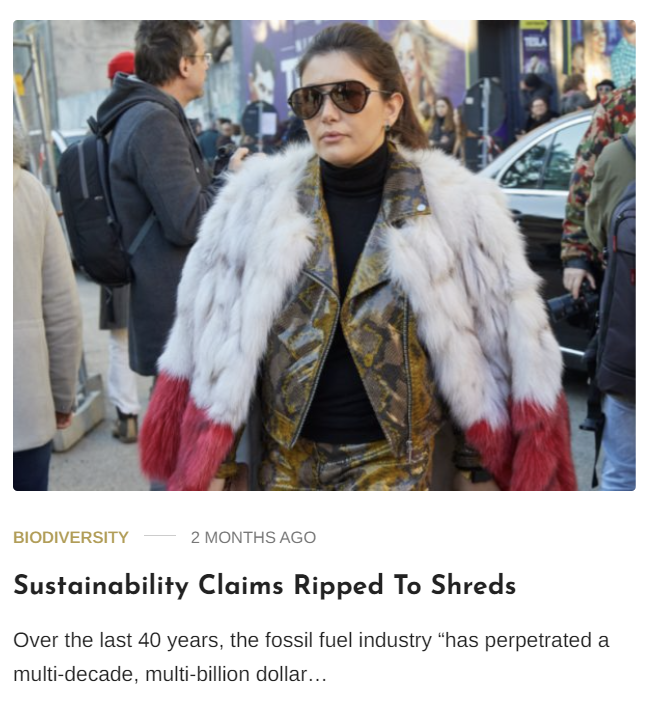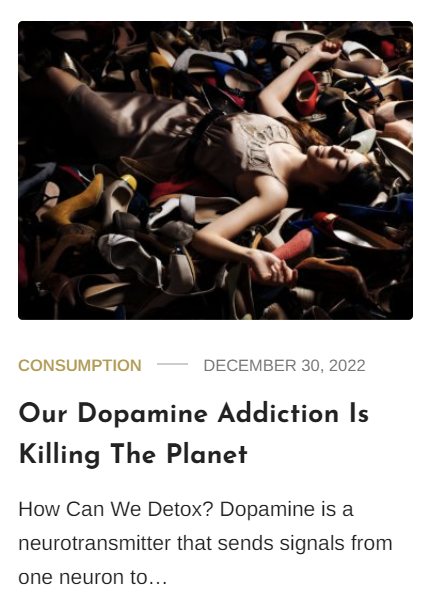Extinction: The Vulgarity of Desire

As we head to Black Friday, routinely the busiest shopping day of the year in the United States, and in a growing number of countries worldwide, it is time to take a look at how social status, self-identity and self-worth are linked to consumption.
Most luxury consumers link rarity to higher status. It may be a luxury car, yacht, haute-couture fashion or accessories, prestige holiday destinations or purchasing ‘exotic’ wildlife products, such as elephant skin shoes, bags or bespoke car interiors.
The desire for products made from rare species is growing rapidly. As a result, species are both increasingly captive bred and harvested from the wild to fulfil both the demand and the desire to supply. While business likes to promote its ‘green credentials’, the system that facilitates the trade in endangered species is so deeply flawed there is currently no proof that the legal trade is sustainable.
This fact was clearly demonstrated in a 2019 report, which confirmed that direct exploitation for trade is the most important driver of decline and extinction risk for marine species and the second most important driver for terrestrial and freshwater species. If production and consumption were indeed sustainable, legal trade would play no part in biodiversity loss.
Extinction is a direct result of the ‘vulgarity of desire’ for luxury goods made from endangered and exotic species.
The current extinction crisis cannot be tackled without redirecting the desire for rare and exotic wild species, which means consumers need a new way of communicating the status they believe they need.
To save the natural world from unchecked overexploitation, we need to decouple consumer status form purchasing products made from endangered species. Such consumers must be seen for what they are vulgar, self-serving and needy. Their mediocrity and vain ambition have helped fuel unrestrained and unconscious luxury consumption. A destructive pseudo-luxury market has grown to the point that the planet’s species are being consumed to death.
What are the responsibilities of industry, business and consumers when they create this outsized risk for a nonessential product?

The industries and businesses profiting from this trade in wildlife, a trade that in 2016 the European Parliament said, “The wildlife trade is one of the most lucrative trades in the world. The LEGAL trade into the EU alone is worth EUR 100 billion [US$112 billion] annually.”, must do something substantial and practical to ensure supply chain transparency. Currently an ever-growing number of elite networks play around with phantom solutions while refusing the ‘fix the basics’.
While these business and industry groups like to promote their ethical credentials by getting behind voluntary certification schemes, they push back on anything that looks like stronger legislation or greater regulation. There seems no evidence that there is too much ‘green tape’ in the world, quite the opposite.
Similarly, while businesses like to promote their commitment to sustainability and supply chain transparency there is ample evidence that in parallel, they lobby governments for legislation to hide poor practices under the guise of commercial in confidence. Bracket creep on what constitutes commercial in confidence means they get to hide the illegal products laundered into their supply chains, particularly at the raw materials end.
Current business practices and consumer desire for rare species need greater scrutiny, but this is a global business scandal you are not likely to see in the mainstream media (yet); at some point this global scandal will break.
In the end social psychology and behavioural economics will need to explore how to provide the elites with an alternative to fulfil their self-image and status needs, based on contribution to instead of consumption of our most fragile heritage.
This is not about waiting until luxury consumers evolve to a higher set of values, such as empathy and compassion for non-human animals, frankly we don’t have the time to wait for this evolution.
It is about accepting that too many people, in so-called advanced economies, have a desire for status to fulfil their self-identity and self-worth; and this is driving biodiversity collapse.
There is no evidence that animal welfare concerns can drive this change quickly enough. While the mass culling of millions of minks may not lead to their extinction, it still begs the question, with the widespread culling of these intensively bred animals and the heart-wrenching images of millions of little bodies being dumped into mass graves during the pandemic, why was there so little public outcry?
We must face the fact that most people simply aren’t affected by this distressing outcome. These and other measures show how many people are detached from wildlife and the natural world, especially in urban areas. If people are detached from the natural world, it is easy to buy products made of endangered and exotic species without thinking about the consequences of their purchasing behaviour.
Once we accept this, society can evolve ways to help these people fulfil this need which doesn’t include the exploitation and cruel practices associated with the trade in endangered and exotic species. The historic concept of Magnificence can provide some of the insights needed to drive this transformation.
We can’t wait too much longer to steer luxury consumption away from the desire for rare and exotic species. We must find ways for people to meet their social status and recognition by contributing to nature and not consuming it. Be it with their peer group, the group they aspire to be a part of or simply the public via social media it is time to send the clear message that extinction because of the vulgarity of desire is no longer acceptable.
If this year’s Black Friday sets yet another spending record, sending a clear message that our ego is in charge of us, rather than the other way around, then collectively we aren’t yet capable of tackling the extinction crisis.

Lynn Johnson is a physicist by education and has worked as an executive coach and a strategy consultant for over 20 years. In her work she pushes for systemic change, not piecemeal solutions, this includes campaigning for modernising the legal trade in endangered species, to help tackle the illegal wildlife trade.




